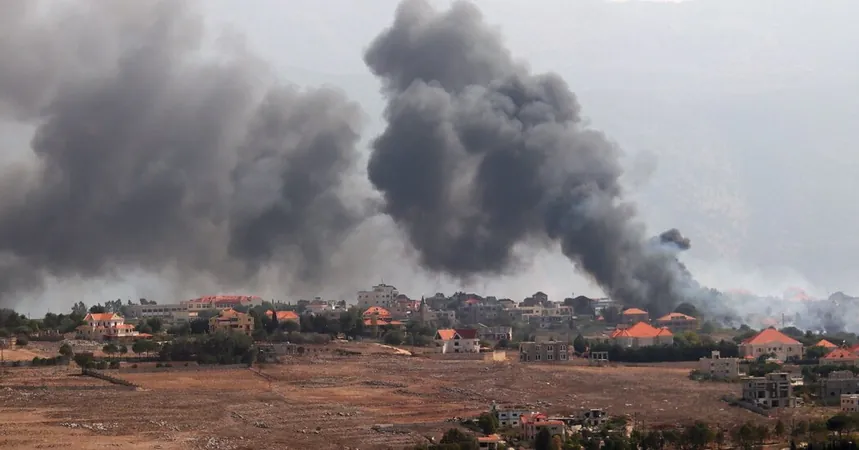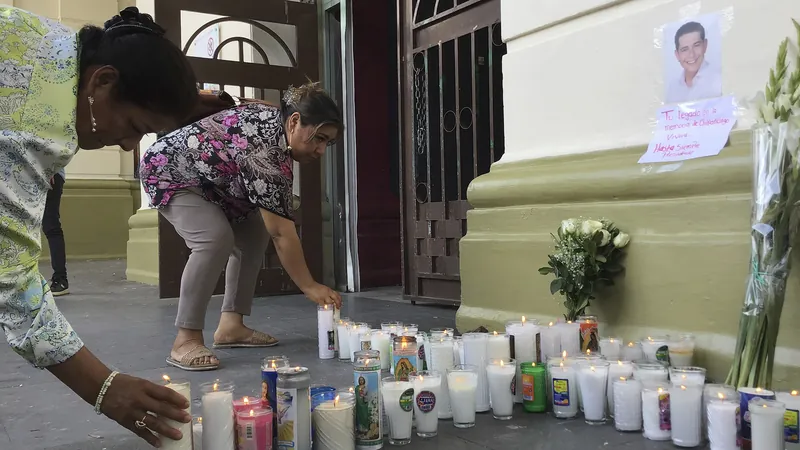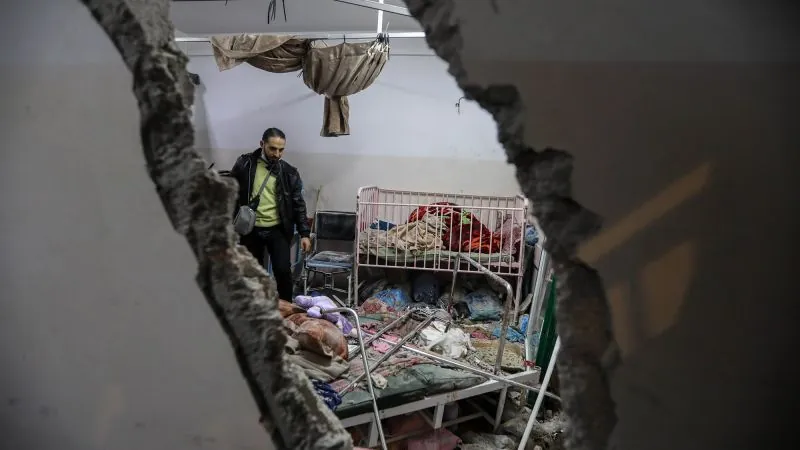
U.S. Pushes to Revitalize Troubled U.N. Plan Amid Escalating Lebanon Conflict
2024-10-11
Author: Wei
In the midst of escalating violence from Israel's military operations in southern Lebanon, the U.S. government is actively pursuing a revival of a long-ignored United Nations resolution aimed at addressing the ongoing conflict between Israel and Hezbollah. Security Council Resolution 1701, adopted in August 2006, was designed to demilitarize the border area and prevent cross-border attacks from Hezbollah. However, senior officials admit the resolution has largely failed to achieve its intended goals.
U.S. State Department spokesman Matthew Miller emphasized the necessity of fully implementing Resolution 1701, calling for the withdrawal of Hezbollah forces from the Israel-Lebanon border and the deployment of both U.N. and Lebanese army troops into the designated buffer zone. This is seen as a potential way to halt Israel's ongoing military actions, which have intensified since the outbreak of conflict following Hamas's attack on October 7, 2023.
Since then, tensions have surged, prompting over 60,000 people to flee northern Israel—in what many officials deem an untenable situation—as the region braces itself for further developments. Concurrently, tens of thousands of Lebanese civilians have also been forced to evacuate amidst months of Israeli retaliation, which has notably escalated since its “limited” incursion into Lebanon that began on October 1.
Deliberations in Washington have included discussions involving Secretary of State Antony Blinken and senior national security aides, who have been pushing for negotiations to alleviate border tensions and curb Hezbollah's military influence. However, one of the central challenges remains enforcing the provisions of Resolution 1701, particularly the requirement that Hezbollah fighters remain behind the Litani River.
The U.N. peacekeeping force, known as UNIFIL, has struggled to assert its authority against Hezbollah—an issue underscored by Israel’s criticism of the peacekeeping mission as an “abject failure” in response to more than 10,000 rockets fired at Israel from Lebanese territory. Analysts suggest that any attempt to revitalize Resolution 1701 will necessitate robust support for Lebanon's army, enabling them to establish a credible presence in the area.
Calls have increased for the disarmament of armed groups throughout Lebanon, as Hezbollah’s extensive military capacity poses a continual threat to both Israel and regional stability. However, accomplishing such disarmament is seen as an uphill battle, requiring sustained international pressure on Iran to prevent resupply efforts to Hezbollah after the current conflict subsides.
As conversations among U.S., Israeli, and Lebanese officials continue, the ongoing troubles plague Lebanon’s political landscape, exemplified by its inability to elect a president in nearly two years. U.S. officials aim to leverage the current crisis to weaken Hezbollah's grip on Lebanese politics, providing an opportunity for the nation to regain sovereignty over its governance.
Despite initial pushback from Israel regarding diplomatic proposals for cease-fires and troop withdrawals, the United States maintains that the best path forward is through negotiation and peaceful resolution. The fallout from this situation remains largely uncertain, as the dynamics between militant groups, governmental power, and international diplomacy evolve in real-time.
Can the U.S. stabilize this precarious situation and restore peace to the region? The stakes have never been higher!



 Brasil (PT)
Brasil (PT)
 Canada (EN)
Canada (EN)
 Chile (ES)
Chile (ES)
 España (ES)
España (ES)
 France (FR)
France (FR)
 Hong Kong (EN)
Hong Kong (EN)
 Italia (IT)
Italia (IT)
 日本 (JA)
日本 (JA)
 Magyarország (HU)
Magyarország (HU)
 Norge (NO)
Norge (NO)
 Polska (PL)
Polska (PL)
 Schweiz (DE)
Schweiz (DE)
 Singapore (EN)
Singapore (EN)
 Sverige (SV)
Sverige (SV)
 Suomi (FI)
Suomi (FI)
 Türkiye (TR)
Türkiye (TR)